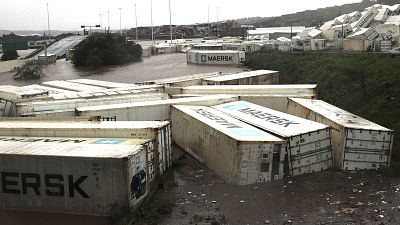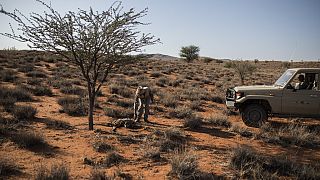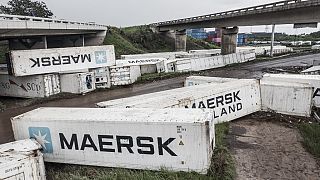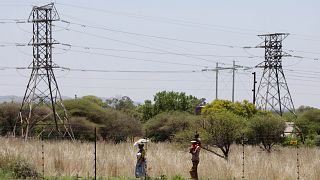South Africa
The death rate from the overwhelming floods in and around South Africa’s port city of Durban keeps rising. As of April 14, over 300 bodies had been counted by emergency service workers… Fear the numbers may increase as the days go by.
Nonala Ndlovu, spokesperson for the provincial disaster management department, said the death toll was “one of the darkest moments in the history” of KZN.
South Africa’s President Ramaphosa has described the situation as "a catastrophe of enormous proportions". According to the AFP, the storm is the deadliest on the record in South Africa’s history.
On his visit to the affected communities on Wednesday, Ramaphosa said disastrous flooding in the Durban area has a direct connection with the climate emergency. “This disaster is part of climate change… It is here, and our disaster management capability needs to be at a higher level.” He said.
According to a World Bank report, floods and droughts have affected 3 billion people, over the last two decades.
The Durban situation coupled with droughts witnessed in other parts of the region this year alone has paved way for a deeper conversation into the impact of climate change on Africa and perhaps a retrospect on the 2021 Glasgow Climate Change Conference, which sought to make climate change a thing of the past.
One of the first objectives of COP26 was to ensure that the 1.5°C objective remains “alive” and that all commitments converge towards a carbon-free world by the middle of the century.
Whiles world leaders manage to mitigate the situation, there is a school of thought, which says the crisis cannot be solved. A climate communications research fellow-university of Queensland in the article “there is nothing we can do anyway” samples various arguments on the climate crisis. The article raises the issue of how an attempt to solve climate change will affect a country’s economy, arguing that the world must choose between a healthy economy and a healthy environment.
However, Juergen Voegele, Vice President for Sustainable Development, World Bank believes adopting the EPIC response framework will help governments, organizations, and practitioners working on climate resilience and disaster risk management address climate-related challenges.
Whiles this may come across as a lasting solution to the crisis, the United Nations Environment Programme predicts extreme flooding will continue to be concentrated in regions where humans have built on floodplains or low-lying coastal regions. With this, other African countries may have to take a cue from the current Durban disaster.














Go to video
Nelson Mandela International Day 2025: The power to end poverty is in our hands
01:07
Only 35% of sustainable development goals on track to meet target, UN says
02:30
Morocco’s oases struggle to survive amid growing desertification
02:03
Muhammadu Buhari's legacy: higlight of his presidential tenure
01:01
Kenya: Visa-free travel now available for many African and Caribbean countries